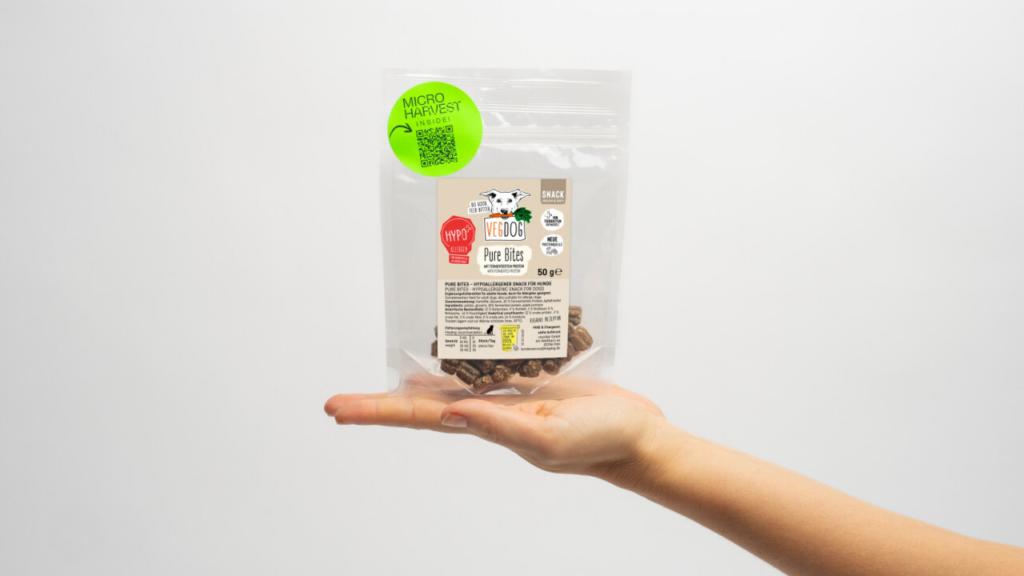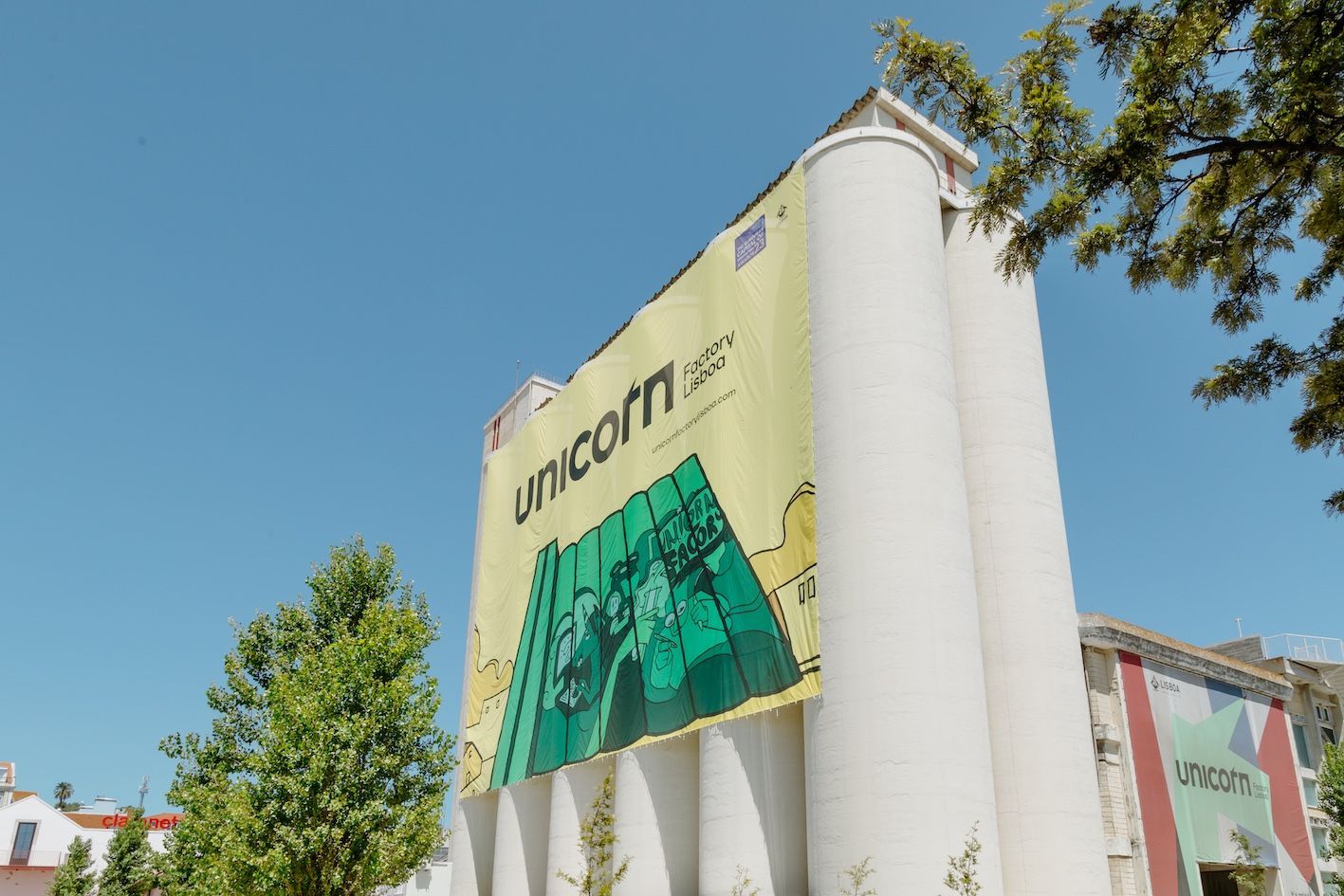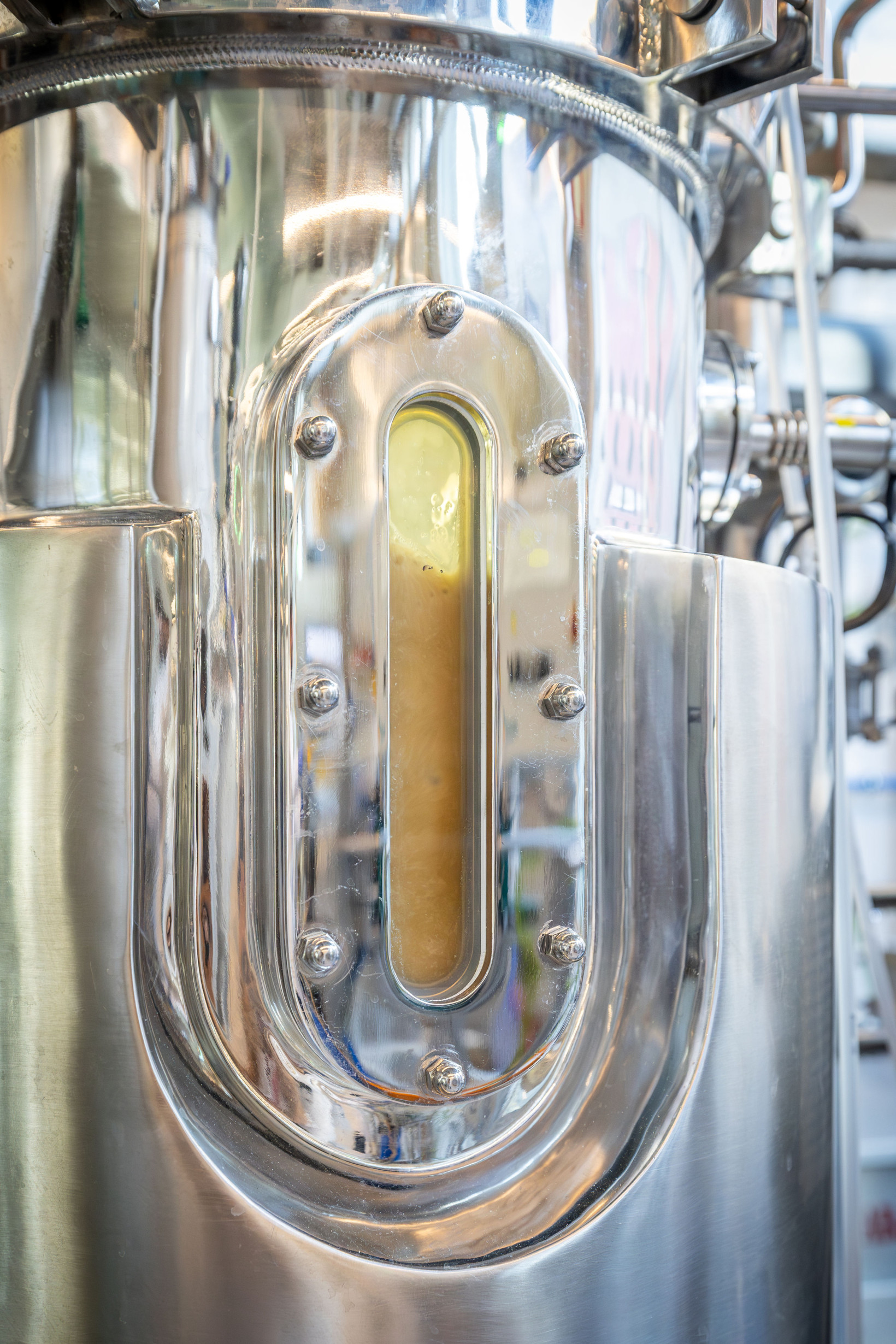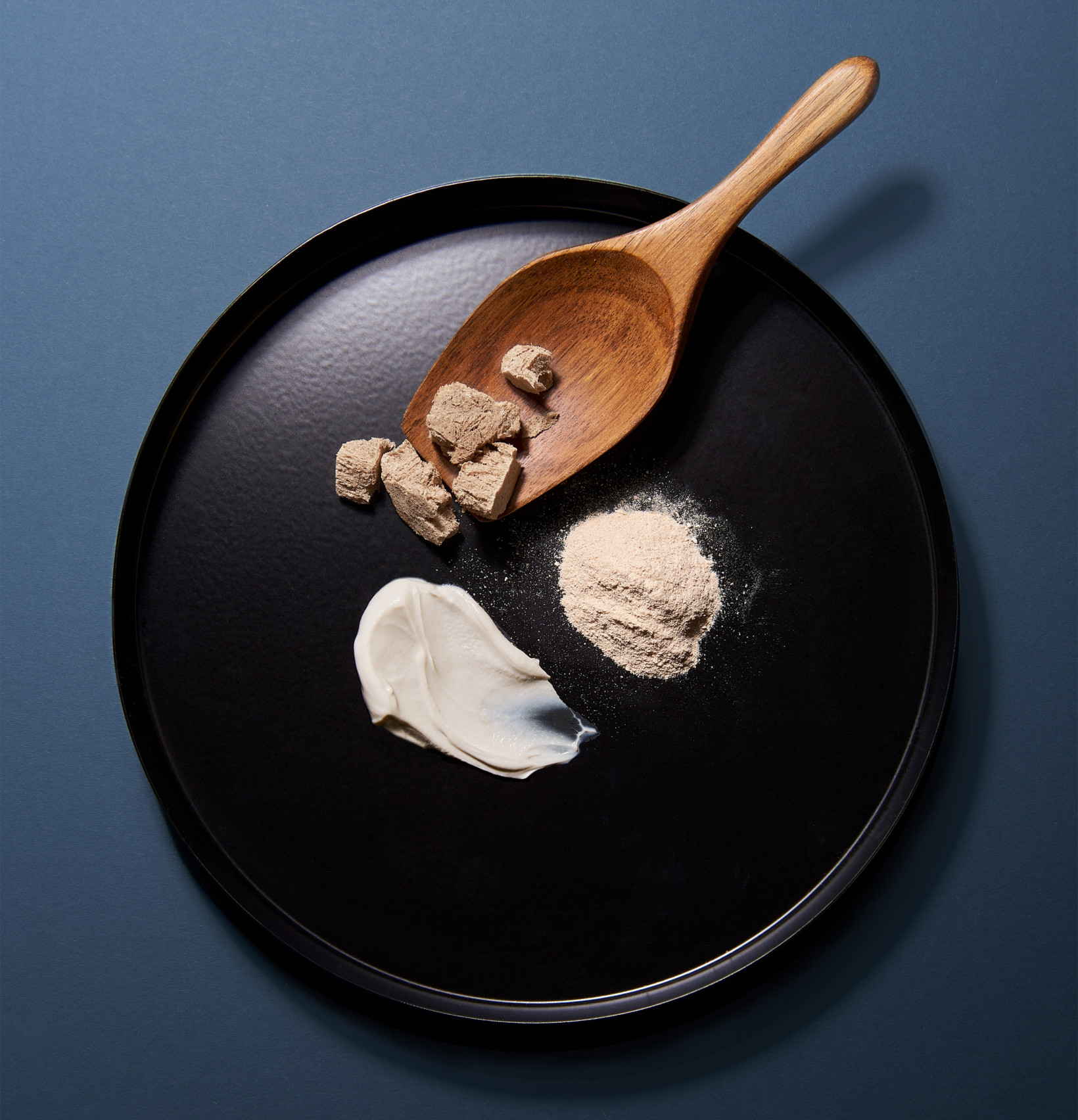A Lisbon lab is turning dead bacteria into dog treats. Next up: Human snacks
Meet the microbes that want a spot on your dinner plate

“Microbial protein,” says Katelijne Bekers, waving a vial of beige-coloured powder in front of me like it’s a magic potion. It doesn’t look like your typical lunch fare, but this unassuming dust could play a crucial role in the future of food.
Bekers is the co-founder of MicroHarvest, a Hamburg and Lisbon-based startup that turns agricultural waste streams into protein powder using microbes — tiny organisms that exist all around us. The vegan ingredient is already making its way into dog treats. If all goes to plan, human snacks like protein bars, shakes, and ice cream won’t be far behind.
I visited the company’s Lisbon pilot plant on a sweltering summer afternoon last month. It’s tucked inside the Unicorn Factory, a sprawling industrial space on the city’s eastern edge that used to churn out pasta and cookies for the Portuguese military. Now, instead of carbs for soldiers, it’s housing bubbling vats of bacteria.

At the centre of the lab sits a large steel fermenter with a small porthole, through which you can see a thick brown soup gurgling away. Inside, billions of microbes are feasting on leftover sugars from the agri-industry, multiplying like microscopic gremlins. Once they’ve done their job, they’re killed and dried into protein-rich powder.
“We prefer to say they’re ‘inactivated’,” Bekers, who is originally from the Netherlands, tells TNW with a chuckle. “It sounds nicer.”
The final product looks like light brown flour and smells faintly like Marmite. It packs a serious nutritional punch — around 60% raw protein, plus a mix of fibre, amino acids, and other nutrients.
MicroHarvest’s powder joins a crowded buffet of alt-protein options — think lab-grown chicken, algae nuggets, pea patties, and mycoprotein steaks. But Bekers is convinced that microbes earn their spot on the plate.
“What we’re producing is much more efficient than plant or animal-based proteins,” she says. “You don’t need acres of land or gallons of water. Our microbes grow in days, not months or years, and they convert feed into protein with incredible efficiency.”

MicroHarvest’s fermentation process takes less than 24 hours — lightning fast compared to growing soy or raising cows. It is estimated to slash land use by 99% and cuts CO2 emissions by over 70% compared to beef.
A 2022 study in Nature found that replacing just 20% of global beef consumption with microbial proteins could cut annual deforestation in half by 2050. Plus, bioreactors like MicroHarvest’s could be deployed pretty much anywhere there’s a significant agricultural industry.
Of course, the idea of eating dried bacteria might raise a few eyebrows — or stomachs. But Bekers is quick to draw comparisons to foods we already know and love.
“These are similar to the microbes you find in things like yoghurt, kimchi, or sauerkraut,” she says. “Food is a cultural phenomenon, and we get that. We’re not trying to replace your steak or convert everyone to veganism. We’re just adding another protein to the menu.”
Fermenting the future

MicroHarvest is one of Europe’s best-known microbial protein producers, but the scene is bubbling with competition. Startups across the continent and beyond are experimenting with different microbes and feedstocks — from Germany’s Formo making alt dairy to the UK’s Enough turning fungi into meat.
Meanwhile, corporate giants like Nestlé and Unilever are testing the waters through partnerships and pilot launches.
Globally, almost $1bn (€874mn) flowed into fermentation-based alt-protein startups last year, according to Dealroom data. Europe attracted nearly half of that, with 2024 marking the sector’s highest funding year ever on the continent.
Alongside that, the EU unveiled a new €350mn funding strategy in July to accelerate the scale-up of fermentation tech, as the continent seeks to tackle its deep-rooted addiction to meat.
Even replacing a portion of our protein consumption with a fermented alternative is a compelling proposition. It could significantly reduce the land and water needed for farming while slashing carbon emissions. But the transition is not without its challenges.
From pets to people
Swapping steak for microbes isn’t as easy as simply building more bioreactors. Fermented proteins currently face high production costs and a battle to win over sceptical consumers, whose opinions on food choices often become embroiled in culture wars.
Then there’s the regulatory red tape. It’s unclear when — or even if — MicroHarvest will get the green light for human consumption. The lengthy approval process for alt-protein products has bogged down other startups in the space. One example is Dutch cultivated meat brand Meatable, which has spent years navigating the regulatory hurdles. Founded in 2018, the company is still awaiting approval to sell its products commercially. It’s now focusing on Singapore, where lawmakers have been more welcoming to alt-proteins than their counterparts in Europe.
MicroHarvest nonetheless remains optimistic. The startup has already submitted a full dossier to the European Food Safety Authority (EFSA) seeking regulatory approval for human consumption of its fermented protein.
“We’re really confident we’ll get it,” says Bekers. “We screened the full DNA of the strain, checked for any harmful potential, and submitted a very complete dossier.”

For now, MicroHarvest plans to scale through another customer segment: pets. Last year, MicroHarvest teamed up with Munich-based startup VegDog to launch its first commercial product — a vegan dog treat made with microbial protein.
Animal nutrition has fewer regulatory barriers than products for human consumption. The availability of conventional pet food and fish feed also falls short of current demand.
“The pet and aquaculture industries are growing rapidly, but the supply of feed is not,” says Bekers, adding that pet food and fish feed already offer a strong path to profitability, even without the human market.
MicroHarvest is now seeking Series B funding to open a new plant in 2027, with a planned capacity of 15,000 tonnes of product per year — 40 times its current output.
Bekers is tight-lipped on the location, but her fellow co-founder, Luísa Cruz, was eager to point out the benefits of doing business in her native Portugal.
“If you want to operate a biotechnology company, Portugal is a great place to do it,” says Cruz, who earned her PhD in biotechnology at TU Delft in the Netherlands.
“It has great universities for biotechnology and a lot of talent, which is why we decided to open our first plant here.”
Backed by record private investment and fresh EU funding, fermentation-based proteins like MicroHarvest’s are bubbling with promise. But turning dead bacteria from pet snacks into mainstream meals won’t be easy.
The next few years will reveal if these microbial powders are a fleeting fad or the future of food. I’m sure cows will be silently betting on the latter outcome.
IT Resource Hub » A Lisbon lab is turning dead bacteria into dog treats. Next up: Human snacks

